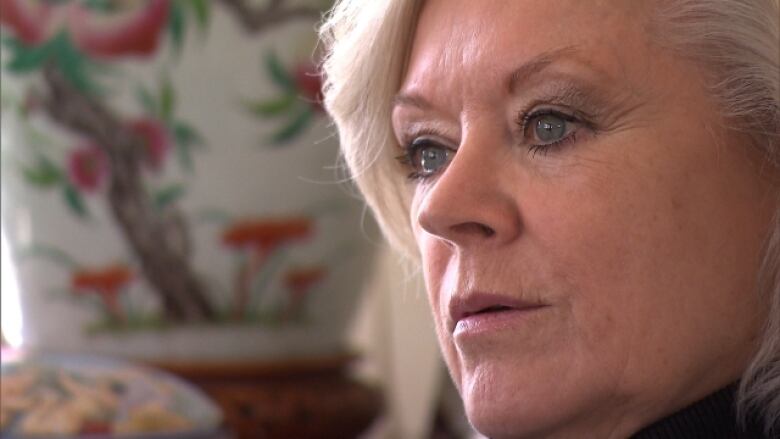Half of Quebec non-francophones consider leaving
Stay or Go series looks at what's pushing people out of Quebec and what's keeping them

Half of Quebec's anglophone and allophonepopulation have considered leaving the province in the past year, a new EKOS poll commissioned by the CBC suggests.
While only 11per cent of francophone respondents said they had considered leaving, the top reasons why people said they have considered leavingweren't centred on language.
The results are actually quite surprising. Thats an awfully large number, said Frank Graves, president of EKOS research.
Its a pretty drastic decision to actually vote with your feet and leave your place of residence. I was frankly a little surprised at how complex the reasons were."
Most people across all groups named taxes, jobs, political uncertainty and the economy as the most significant reasons they had contemplated a departure.
As part of an exclusivetwo-week series, CBC Montreal will look at what is pushing people to consider relocating out of Quebec, what is keeping them in the province, and what hopes they have for their future in Quebec.
A total of2,020 Quebec residents were interviewed by phone betweenFeb.10 and18, 2014, with a margin of error of plus or minus 2.2 percentage points, 19 times out of 20.
Divisive mood
Suni Hope-Johnston, who moved from England to Montreal in the early 1970s, said she was attracted to Montreal because it had the flavour of Europe and was exciting.
"I can remember my husband and I dancing until 4 a.m.," she said. "We had a wonderful time, and then it stopped."
Hope-Johnston started a family, and her lifestyle changed, but so did the city that was once so attractive.
She said the present mood in Quebec is divisive and limiting.
"I think it's every young Quebecois's birth right to speak both languages," she said. "Every child should go to school to learn French and English. For the moment, this kind of separation, it's a tragedy."
She's considering a move to Ontario, which, the EKOS poll findings suggest, is common among people thinking about leaving the province. Forty per cent of those who said they were thinking about leaving both francophone and non-francophone said Ontario would be the best alternative. The U.S. was the second most popular alternative, with 14 per cent of all respondents.
MarcStamos, a Montreal native, is also thinking about a move to Ontario. He saidbilingualism used to be a source of pride, but language has become so politicized again in the province that it's become a point of contention.
"For the first time since the '90s, I feel like Ihave to assert my anglophone-ness, my English-ness," he said. "You know, things have been dormant and so calm for so long that my brother and myself and my friends were comfortable speaking French."
With a looming election, however, and the possibility of a PQ majority, Stamos said many people he knows are debating whether they want to go through "the whole roller-coaster" again.
Graves, of EKOS, said that while the number ofrespondents who said they'd considered leaving was higher than he expected, telling a pollster is one thing, and selling your home and uprooting your family is another.
He said it's unlikely manyof those who had considered a move would go when push comes to shove.
Economic factors
The economy camein just behindpolitical uncertainty as one of the top reasons for potentially leaving Quebec.
Brett House, seniorfellow at the Jeanne Sauve Foundation and theCentre for international Governance Innovation, says the economic picture in Quebec isn't as bleak as some of the perceptions, but the province is under-performing.
"We're mediocre right now we're not doing great, but we're not a disaster either," he said. "We're improving a bit, but we could do a lot better.
"Quebec has the potential to be one of the two economic engines of this country, in addition to Ontario and yet, it's still performing far belowwhat it should be."
About the survey
A total of2,020 Quebec residents were interviewed by phone betweenFeb.10 and18, 2014,as part of this CBC-commissionedEKOSstudy.The margin of error for a sample of 2,020 is plus or minus 2.2 percentage points, 19 times out of 20.
Those surveyed included782 anglophones(with a margin of error of plus or minus 3.5 percentage points95 per centof the time), 1,009 francophones(with a margin of error of plus or minus 3.1 percentage points95 per cent of the time) and223 allophones(with a margin of error of plus or minus 6.5 percentage points 95 per cent of the time).
Anglophones are respondents who identified their mother tongue as English; francophonesare people who identified their mother tongue as French; and allophonesidentified their mother tongue as "other."
Percentages for total respondents have been weighted to reflect linguistic population make-up of Quebec.













_(720p).jpg)


 OFFICIAL HD MUSIC VIDEO.jpg)
.jpg)



























































































